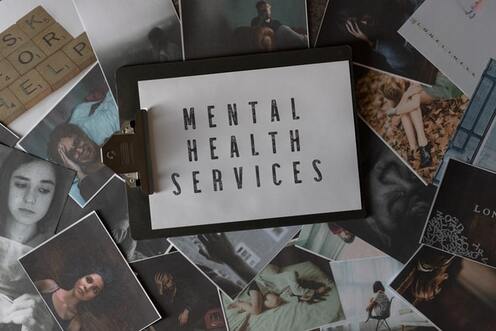|
Retirement can be an exciting time of self-exploration and growth, but it can also be intimidating. If you take the time to map out your goals and make plans for achieving them, retirement can be full of new adventures and rewarding experiences. Following are some tips from Real Life with Heather to improve your quality of life in retirement. Start VolunteeringOne great way to improve your quality of life in retirement is to start volunteering. Not only are you giving back to your community, but you're also staying active and social. Volunteering is a terrific way to stay mentally sharp in retirement. Keep Busy and Streamline Your HomeOne of the best ways to improve your quality of life is to keep yourself busy. You can do this by taking up a new hobby, traveling, or joining a social club. Doing things that make you feel good and keep you mentally stimulated and physically active will help you enjoy your retirement years. One area where it’s vital to keep busy is at home. Keeping your living space clean and decluttered is not only important for your safety, it also helps promote a healthy, positive energy. Stay on top of clutter at home to ensure that you stay safe and secure. This applies to your bedroom, as well. If you aren’t getting enough rest, try blackout curtains, or invest in a new mattress. You should also look into bedding that’s not only comfortable but can add some style to your surroundings; this deserves a look, with many different designs to choose from. Exercise MentallyAs you age, it's crucial to keep your mind sharp by exercising it regularly. One way to do this is with mental puzzles like crosswords and Sudoku. You can try memory exercises or learn a new skill. Keeping your mind active can help fight dementia and other age-related cognitive declines. Practice YogaYoga has so many benefits for seniors. It can help improve flexibility, balance, and strength. It's a wonderful way to calm the mind and reduce stress. You can find classes at your local community center or online. Start Your Own BusinessImprove your quality of life in retirement by starting your own business. Your business can provide a sense of purpose and accomplishment and help you stay active and engaged. Once you've decided on a business idea, conduct some research on how you can start it and run it. Seek Medical HelpAs you age, your body goes through changes that can sometimes be difficult to manage. It's vital to seek medical assistance when you need it, whether it's for a physical ailment or mental health concerns like depression. A trained professional may decide antidepressants are a suitable treatment for you. When choosing an antidepressant to prescribe, a doctor will consider your symptoms, other medications, and any pre-existing medical conditions. A mental health professional tracks any side effects to ensure you stay healthy and safe. Antidepressants aren't effective for everyone, and they can't treat every type of mental illness. Quality of LifeManaging your health is one of the best ways to improve your quality of life in retirement. From staying active and upgrading your bedroom decor to starting your own business, the ideas listed above are great ways to stay active and engaged.
Real Life with Heather is here to help you meet your goals. Check out our shop today! In a world that often demands certainty and confidence, self-doubt can emerge as a formidable adversary. Its insidious whispers infiltrate our thoughts, sabotaging our dreams and potential for growth. It casts a shadow over our abilities, leaving us questioning our worth and capabilities. But amidst this seemingly endless struggle, there lies a transformative journey that holds the key to conquering life's challenges. It is a journey of unmasking the roots of self-doubt, reframing our inner dialogue, and embracing failure as a catalyst for growth. By cultivating self-awareness, building a supportive network, and practicing self-care, we can rise above our doubts, unlock our true potential, and forge a path of resilience and self-belief. Overcoming self-doubt is possible. It is time to embrace the power within. Unmasking the Roots of Self-DoubtWithin the labyrinth of our minds, the origins of self-doubt lurk, hidden beneath layers of insecurities and past experiences. It is a journey of excavation—a daring quest to unearth the buried seeds of doubt that have taken root within us. By delving into the depths of our psyche, we can recognize the subtle signs that betray our confidence and expose the vulnerabilities we often conceal. We can understand their grip on our lives only by shedding light on these roots. Through this profound introspection, we gain the power to break free from their hold and forge a new narrative of self-belief and unwavering conviction. Self-Doubt to Self-Beliefor - reframing the inner dialogue. In our inner dialogue lies a battlefield where self-doubt clashes with self-belief. A tumultuous struggle unfolds silently within us, shaping our perception of ourselves and the world around us. To triumph over self-doubt, we must first challenge the whispers of negativity that echo through our minds. We must dare to question the validity of those self-deprecating thoughts and uncover the limiting beliefs that anchor us down. Through the alchemy of conscious awareness and compassionate introspection, we can rewrite the script of our inner dialogue, replacing doubt with self-belief. It is a process of self-empowerment, where every word spoken within becomes a stepping stone towards a brighter, more confident future. Embracing Failure and Learning from SetbacksIn the realm of our aspirations, failure often lurks as a feared nemesis, ready to pounce on our dreams and shatter our confidence. Yet, what if we were to view failure through a different lens? What if we were to embrace it as an indispensable companion on our journey toward growth? Through failure, we learn resilience, adaptability, and the true measure of our strength. In the face of setbacks, we uncover hidden depths within ourselves, discovering the courage to rise again. This resonates profoundly with those who have embarked on the arduous path of addiction recovery. Life skills that you learn during recovery are the skills you will need after leaving the program. - such as perseverance, self-discipline, and self-awareness. By shifting our perception of failure, we transform it into a stepping stone, a catalyst for progress. Let us embrace failure as a formidable teacher, linking it with the skills acquired during addiction recovery, guiding us towards a life infused with wisdom and unyielding determination. Overcoming self-doubt: Unveiling the power withinAuthenticity and self-awareness are powerful forces that fuel self-confidence and attract meaningful connections. By getting in touch with your strengths and values, you can align your actions with your true self, leading to a sense of fulfillment and purpose.
The Strength of ConnectionIn the grand scheme of things, we are not meant to navigate its challenges alone. It is in the embrace of a supportive network and the wisdom of trusted mentors that we find solace and guidance. Building a supportive network is akin to weaving a safety net that catches us when we stumble, providing comfort and encouragement in times of doubt. Seek out those who uplift and inspire you and believe in your potential even when you struggle to see it yourself. Embrace the power of community and the guidance of mentors who have trodden the path before you. Together, we rise, armed with the collective strength of connection, overcoming self-doubt and conquering life's challenges. The Journey of ProgressIn the realm of personal growth, action becomes the catalyst for transformation. It is through deliberate steps, no matter how small, that we forge our path forward. Embrace the power of taking action, for it is in these courageous moments that we challenge self-doubt and propel ourselves toward success. Break down your goals into manageable milestones, each step a testament to your commitment and resilience. As you traverse this journey, remember to celebrate the small wins. Acknowledge the progress made, no matter how incremental, and let it fuel your motivation to keep moving forward. By embracing the journey of progress, we transcend self-doubt, one step at a time, and emerge stronger, wiser, and closer to realizing our fullest potential. Final WordsBy cultivating authenticity, building a supportive network, and taking action, we unlock the keys to conquering life's challenges. Embrace this empowering journey and witness the unfolding of your true potential. Overcoming self-doubt? Yes, please. Author Bio:
Ewan Blanchard is a dedicated freelance writer who channels his passion for psychology and well-being into thought-provoking articles. With a keen understanding of human behavior and a talent for articulating complex concepts, he strives to inspire and empower readers on their journey toward personal growth and fulfillment. Say yes to this, say yes to that... Yes, saying yes can bring much positivity and good into your life. But that doesn't mean you have to make the word 'No' a villain in your story. Knowing when to say no might be even more important than knowing when to say yes. Avoiding using 'no' as an answer can get you into a much trouble since people are built to sense and use the people-pleasers. If you have a problem with that, don't worry! You're not the only one, and we're here to help. Here are six effective strategies for saying no with confidence. 1# Acknowledge that it's good for your health The first thing we need to unravel is the sensation of negativity that is the core and base of this word. Yes, it's a negation, but it can bring many positive things to your life! This is the one word that is the absolute must for setting personal boundaries. If your boss wants you to stay and work after your shift, you need to know how to decline that and not worry about it afterward. It may seem harsh at first glance, but the boundaries are the things that make your personality. If you have none, you're at risk of becoming a fluid being that doesn't know what they are. Seeing this issue from the perspective of your health will help you realize the benefits of saying no. Hopefully, you'll start using it more often and setting your boundaries fearlessly. 2# Be aware that others will say no to you too One of the most common misconceptions that people don't say no to as often is that, if they do, everyone around them will behave the same way. They won't. And they shouldn't. This is a cruel world with a lot of toxic people, and everyone needs to look after themselves. So, don't be afraid to set boundaries and say no when needed. An excellent way to start is to listen to people saying no to you. Also, you can try and follow what people you consider confident say when they don't feel comfortable with something. Raising awareness that other people do it too can be a great push in the right direction since it won't be as uncomfortable for you to say it. 3# Instead of being aggressive, try being assertive People often assume they need to be rude while rejecting an offer to show how serious they are. Avoiding aggression in favor of a more emphatic "no" usually leads to greater understanding and compromise. Keep your cool and avoid being impolite. Saying no should be done with clarity and compassion for the other person's sentiments. Politely declining is not bad Being assertive enables you to articulate your thoughts and feelings in a manner that the other person can hear and comprehend while yet feeling heard and comprehended. This easy method of politely declining others' requests can help you develop a stronger sense of self-expression and clarity about what really works for you. These are the third of several easy ways to avoid saying yes when you really mean no. 4# The key is being straightforward Keeping things simple is the best. A common mistake among newbies that are only learning to say "No" is giving too much explanation. You have your reasons and don't have to write an essay about them for the other party. Instead, you can briefly explain why you can't do it and let the individual know. You don't need to go into too much detail since it isn't necessary and might lead to the other party attempting to argue your position when all you want to say is, "No, thank you." 5# Rehearse saying no with confidence Not everyone is extroverted enough to be comfortable with saying no eye-to-eye. There are many people with performance anxiety, and that's okay. However, you can't permanently hide behind a text or an email. It's helpful to practice saying "no" in advance, so you're ready for these scenarios. Rehearsing your lines in front of a mirror will help alleviate your concerns about sounding robotic or unnatural. An even better and more efficient rehearsal would be in front of someone you love and trust. A family member or friend can help assure you that you're doing it alright and that it's normal before you get comfortable enough to say it to other people. 6# Appropriate body language can make things easierThe first thing people notice, subconsciously and often consciously, is how your body presents your decision to the world. Strong and confident leaders send messages via their bodies before they open their mouths. A good rule of thumb is to practice saying no to your body via some general "negative" body language. For example:
Final thoughtsSaying yes all the time can be exhausting and energy-draining. Once you see that a simple "No" is not a bad word (quite the opposite), you'll have much more time and energy to invest in things you want to say yes to. So, try out these strategies for communicating no with confidence and witness the significant difference yourself. This will significantly help your evolution as a person and a path to a happier life. Author's BioMonica Adams is a psychologist and a consultant at Royal Moving Company, invested in helping people deal with stressful times and other day-to-day problems. She says she’s the happiest when she spends a day in the sun with her family and when she sees that her advice helped someone in need.
With a record number of individuals experiencing mental health problems like depression, there is a greater need than ever for effective medical care. More than half of individuals in the United States who suffer from a mental health condition do not get help for it. The CDC reports a sharp increase in the adolescent suicide rate, which is more proof of a severe shortage of care among this population. Unfortunately, adolescents may be the most vulnerable because they often don't have the means to afford therapy. Trying to deal with mental health if you can't afford therapy is really tough. However, always remember that everyone has the power to overcome this on their own as well. 6 Ways to Deal with Mental Health if You Can't Afford TherapyBut why individuals aren't receiving the assistance they need? Well, it's not a simple answer. Campaigns like Mental Health Awareness Month strive to reduce the stigma associated with mental illness. Still, the truth remains that mental health has not been given the same level of attention as physical health by our healthcare system. For example, there is no such thing as an annual mental health checkup covered by insurance, and therapists who take insurance sometimes have to put in twice as much effort simply to be compensated. Unfortunately, not everyone has a low-stress job, so many people are struggling with anxiety and depression. However, there are other ways to deal with mental health if you can't afford therapy. 1. Check with your insurance companyIn the event that you receive coverage via your job, the Health Insurance Marketplace, or Medicaid, you will have access to the following basic mental health services:
However, not every therapist will work with your insurance. If the therapist accepts your insurance, you may go ahead and schedule an appointment with them. Copayments and coinsurance should be covered by your Health Savings Account (HSA) if you have a high-deductible health insurance plan. 2. Talk to a psychologist in trainingThink about visiting a clinic where aspiring psychologists get hands-on experience. Most of these clinics may be found on school campuses that provide programs leading to certification as therapists. Your therapist may still be a student, but they will be working under the supervision of a licensed professional at all times Clients shouldn't be reluctant to work with an intern or trainee. Interns have a lot of supervision, are highly industrious, and are enthusiastic about assisting customers. Interns have fresh and up-to-date educational training and can sometimes be seen for a very cheap fee. You can finally stop worrying about money. Student therapists are oftentimes more eager to help out than the already established ones. 3. Look into community mental health centersCommunity centers for mental health care are another excellent option. They have a deeper understanding of the neighborhood challenges and cultural perspectives on mental health that they serve. They help those struggling with mental health issues and may help lessen the social stigma associated with such conditions. You can learn some healthy practices from these community centers and get the benefits of mental health counseling. Additionally, they have been demonstrated to aid in lowering suicide rates. You can find these across the country. 4. Become a member of a local or online support groupsThere are a lot of free support groups, trauma support groups, and addiction recovery support groups available via nonprofits, volunteers, and local organizations. For instance, a wide variety of support groups are available to those dealing with substance use disorder, mental disorders, and domestic violence. In addition to local support groups, the National Alliance on Mental Illness (NAMI) also provides free peer-led support groups for people with mental illness in every major city. 5. Self-help literature, meditation apps, and podcastsYou may do various things under your own steam that will contribute to your emotional and physical well-being. Look for books on self-improvement at your local library or budget bookstore. For anyone struggling with mental health concerns like sadness, anxiety, or loss, there are plenty of books that may help. If you like reading, this is a great way to learn more about your condition and try to implement some advice. Free smartphone applications may help with mental health issues such as anxiety, depression, bipolar disorder, and post-traumatic stress disorder (PTSD). Similarly, there are podcasts, online blogs, and forums that focus on mental health and healing. These aids are not a replacement for conventional treatment, but they may be useful when combined. 6. If you are religious, try speaking with a member of your churchPeople seeking mental health treatment may greatly benefit from assistance based on faith and religion. You may expect to be treated with kindness and compassion, and the assistance you get will be consistent with your morals and beliefs. Get in touch with other members of your church or search online for local support groups. Having friends and family there for you is a huge help, and having ties to your neighborhood really helps a lot. Even if their primary purpose is not to improve mental health, consistent social interactions, such as those seen in religious organizations or social clubs, may have a profound effect. Having your people around to support you is one of the best ways to deal with mental health if you can't afford therapy.  Fiona Jenkins is an aspiring journalist who likes to focus on important causes that can make an impact on our community. Vacations are great, but they can also be expensive. Luckily, there are many ways to get away without breaking the bank. Here we've put together a list of five low-budget vacation ideas you should consider. These are guaranteed to leave you feeling relaxed and refreshed. Go CampingIf you're looking for a low-cost vacation idea, consider camping. This is a great way to spend time with family and friends and get away from the hustle and bustle of everyday life. Also, it’s a good way to enjoy the outdoors. If you work in an office or handling a stressful job, camping can help you leave your work at work and clear your thoughts. Although it’s not the most luxurious way to travel, it’s usually a wholesome experience for people who enjoy it together. The best part is that you camp anywhere – you can choose a campsite or in your own backyard. Visit a National ParkIf you love the great outdoors, taking a vacation to a national park is an affordable option that doesn't require much planning. National parks are often overlooked when people think of a low-budget vacation because they're free and accessible. However, they provide a lot of value for the money, especially if you're looking to spend time in nature instead of paying for hotels and restaurants. Many national parks offer campgrounds with sites that cost less than $20 per night. You can expect to get access to hiking trails, waterfalls, museums, and more without breaking your budget. If your dream vacation includes hiking through mountains or swimming in lakes surrounded by trees, visiting one of these natural wonders should be at the top of your list! Check Out Your State Park SystemYou don’t have to head out of the country or even out of state. Your backyard is full of incredible natural beauty, and all you need to do is explore it. You should consider checking out your state park system for recreational opportunities, historic sites, and more. Many states have parks that are just as spectacular as national parks but without the crowds and high price tags. You can find state parks in every corner of the country, from Hawaii's Haleakala National Park on Maui to Tennessee's Natural Bridge State Park near Nashville. And if you’re lucky enough to live near a national park, it can be a good way to travel and not worry about money. You won’t be disappointed. State parks are often less crowded than their national counterparts, which means you’ll have more time to explore and enjoy the great outdoors. And if you’re lucky enough to live near a national park, make sure you visit. You won’t be disappointed. Explore Your Hometown or a Nearby City as if You Were a TouristIf you're looking for an inexpensive vacation that doubles as a learning experience, try exploring your hometown or a nearby city as if you were a tourist. You'll have a better appreciation for the things you take for granted, and who knows? You may even make some new friends with locals. This is especially fun if you live in an area with rich history, architecture, or cultural traditions. For example, if you're visiting New York City with family members, they'll love learning about Ellis Island. You can take a walk around Battery Park or visit the Statue of Liberty. In case you're looking for a more exotic vacation, consider a trip to another country. You can save money by staying in hostels or renting an apartment instead of staying at expensive hotels. Traveling is usually a costly affair. If you are looking for a cheap vacation, you will have to be creative. There are many ways that one can go on a low-budget vacation. You don't need to spend a lot of money to plan a relaxing vacation! If you know how to plan your travel budget properly, then even the most budget-conscious travelers can enjoy themselves without breaking their bank accounts. Tips for Planning a Low-Budget VacationIf you want to save money while traveling and still have a great experience, consider the following:
Consider Taking a Road TripMost people in the US would agree that road trips are the best! You can see a lot of places in a short amount of time, and you don't have to worry about finding hotels or staying with friends. Plus, they're great for families! I recommend taking road trips across California because it's beautiful and has so many instagrammable places and beautiful spots in the state you should check out. Here are some of the best ones:
If you're looking for affordable hotels near these places, consider staying in a hotel near Yosemite National Park. There are so many hotels there, and they all have great views! You can also stay in San Francisco if you want to spend less money on your trip. If you're looking for hotels in San Francisco, staying at the Palace Hotel could be a great option. It's one of the oldest hotels in San Francisco and has amazing views of downtown. You can also stay at The Ritz Carlton if you want something more luxurious! ConclusionWe hope these ideas gave you some inspiration for your next low-budget vacation. And if you're still not sure where to go, take your time. Think about the places you want to see, and try booking your trip a few months in advance. This will most likely save you money and allow you to plan your trip to the detail. Choose your destination, and have a nice trip!
Are you in need of some self-care? Taking a wellness vacation is a great way to leave your cares behind and reset your mind and body. This trip is all about you and your needs! When you take time to care for yourself, you’ll be better able to handle the responsibilities of daily life, like caring for family or navigating work challenges. Put life on hold for a little while and treat yourself to an enjoyable getaway. Courtesy of Real Life with Heather, here are five fantastic cities to visit if you’re seeking self-care! New York City, NYWhile many people seek relaxation on sunny beaches and shaded forests, others are calmed and comforted by the hustle and bustle of city life. If this describes you, consider booking a self-care trip to New York City! NYC is always an exciting vacation destination. You’ll never run out of things to do in the Big Apple, from visiting historic monuments to exploring famous museums. If you’re a sports fan, NYC is the place to be. Treat yourself to a game at the world-renowned Yankee Stadium! Look for discounted tickets on ticket seller websites that offer advanced search features to help you find tickets based on date, price range, and seat ratings. Some websites even offer sports fans a chance to peek at the in-seat views before purchasing tickets. Orlando, FL Naturally, the first thing everyone thinks about when it comes to Orlando is Disney World. However, there’s plenty of other things to see and do – if and when you get tired of Disney World, that is. But be warned: there’s so much there that it’s impossible to cover everything in a day (or even two), so it’s a good idea to check sites like Mouse Life Today so that you can plan your budget and itinerary well in advance. And don’t worry – you can always go again! Salt Lake City, UTServing as a gateway to five of America’s national parks, Salt Lake City is a fantastic travel destination for hikers. The city itself boasts amazing dining options, interesting historic sites, beautiful architecture, and eye-catching street art. Downtown Salt Lake City is very pedestrian-friendly. You can even rent bikes or electric scooters to get around, so save some money and skip the rental car. Check out VisitSaltLake.org to find more information about this wonderful city! Aspen, COAspen features world-class skiing in the winter and beautiful hiking opportunities in summer. If you’d rather spend your self-care vacation taking in the great outdoors than walking around a city, Aspen could be your perfect trip! Travel + Leisure describes Aspen as one of the world’s most accessible mountain getaways. The small town has everything you could ever want, from a vibrant outdoor dining district to trendy neighborhood shops. Take in the art scene, enjoy a high-class meal, and hike to a gorgeous alpine lake. You’re bound to return from your visit feeling relaxed and refreshed! Boston, MAAnother exciting city adventure, Boston is one of the most popular tourist destinations on the East Coast. The city is brimming with historic sites, incredible architecture, and fresh seafood. You can spend your trip exploring museums, discovering beautiful parks, or setting sail on a whale-watching cruise. Boston truly has something for everyone! Preparing for Your TripBefore embarking on your self-care adventure, make some work preparations so you don’t have to worry about what’s going on back at home. If you run your own business, inform your clients and customers that you’ll be away for a few days and consider hiring a virtual assistant to handle your daily responsibilities while you’re away. If possible, try to get some extra work done before you leave. This way, you won’t have to face the stress of playing catchup right after your relaxing vacation.
While self-care can and should be a daily practice, sometimes you just need to get out of town for a dedicated self-care trip. Start looking for places you could go and things you could do, like visiting Disney World or exploring the national parks surrounding Salt Lake City. As long as you make a few work preparations before leaving, you’ll be able to enjoy a carefree getaway! Real Life with Heather is here to help you live life, set goals, and be amazing. Feel free to check out our blog archive! Pollution is all around us. Rivers, soil, air... there's toxic waste everywhere. However, the most dangerous toxins often come in human forms. It can be the most charming person in your environment or someone very close to you. People you're closest to have the most power to poison you. If they have that kind of venom in their heart, you can be exposed to the most difficult toxicity of all. In those situations, it's essential to recognize the problem and follow the basic dos and don'ts of dealing with toxic people. Do: Put a finger on their effect on your emotions The most dangerous toxin that toxic people produce is the one that wraps up all the other toxins in a shiny paper of false good intention. Manipulative people often come off as the most charming and sincere human beings. Months may pass before you even begin to comprehend that something is not quite right. But, once you hear that tiny voice in your ear that starts whispering around them, it's time to take a good look at your inner being. They're saying the sweetest things, but somehow your gut turns to knot every time they open their mouth. Listen to your emotions. Emotions that you feel are effective subconscious defense mechanisms that you should never ignore. The only way you'll be able to deal with toxic people and defend yourself from malice is - to identify and acknowledge your inner defense mechanisms. Don't: Let them under your skin One of the few worst talents toxic people possess is making you doubt yourself. They master the art of destroying confidence and making people insecure. Keep in mind - no one is always right, and no one is always wrong. So, if someone makes you feel like you're a walking mistake, it's probably because they're subtly tearing your confidence and draining your energy for a long time. Once you recognize that behavior, make sure not to let that person influence your self-esteem; build a wall by using your logic. Separate what they say from what they do. That will help you put everything in perspective and put your thoughts first. Do: Make a distance Your surroundings have a significant impact on your outer and inner well-being. That's why, when you recognize the toxic person in your immediate environment, you must take proper measures to distance yourself as soon as possible. Unfortunately, one of the drastic measures that are vital sometimes is moving far away. According to experts at familyaffairmoving.com, in cases when your psychological well-being depends on the move, it's best to find a new home at a place that motivates you and helps you feel at peace. Or find the alternative However, sometimes, it's not possible to do that. In those cases, a good alternative is to:
Don't: Let them suck you in their universe Being around poisonous conduct can wear you out. This individual probably continually grumbles about other people, always has a new tale about the injustice they endure, or they try to convince you that you hurt them in some way. What is happening is that they are drawing your subconsciousness into the miserable world of dull suffering. The best thing you can do is to avoid any further interaction. Resist the temptation to join them in grumbling or defend yourself against their charges. A good old "that's tough, buddy" and walking away will do the job perfectly. It will be better for your health to read a good book or do something creative instead of wasting time listening to someone's whining. Do: Work on yourself Toxic individuals will make every effort to highlight your shortcomings and minimize your accomplishments. This is how they maintain their position of control. The best thing you can do is to work on yourself and accept every single bit of your being. Focus on self-care. If you are able to take ownership of both your strengths and shortcomings, then what other people think of you won't matter. You will know that your strengths are more than sufficient to make your deficiencies irrelevant, and no one can use them against you (no matter how hard they try). Don't: Try to fix them It's a tale as old as time that manipulative and toxic persons take their malign, broken personalities and mask them into something naive that 'just' needs help. Many women stay in abusive relationships with manipulative partners because they think they can help and fix them. However, the truth is - you can't fix anyone, especially not a toxic person. They are the only ones that can improve themselves if they choose to do so. Unfortunately, that is unlikely to happen. Remember that toxic persons love to feed off your empathy and suck the life out of people around them. Invest your time and energy in personal growth and achieving life goals. Dealing with toxic people is not easyIt's easy to give advice about dealing with toxic people from a distance. Doing it is something else. You might feel trapped and suffocated internally. You might feel like you're not strong enough to do it on your own. And that's completely alright. There's no shame in needing help. When you recognize the problem, make sure to seek it from the people you fully trust or experienced mental health professionals. Don't forget - even if everything seems dark and miserable, hope waits at the bottom of Pandora's box. There's no obstacle you can't overcome, and you'll come out as a winner from this too. Believe in yourself. I believe in you.
If concerns about climate change are keeping you up at night, you’re not alone. It’s easy to get discouraged by all the bad news about burning forests, rising sea levels, air pollution, struggling wildlife, and the general destruction of our natural environment for political and financial gain. The media constantly reminds us about all the ways in which we’re killing our beloved planet, and it’s normal to feel a sense of guilt and despair around this news. The good news is that there’s a lot you can do to relieve your climate anxiety and stand up for our planet. Every one of us has the power to heal the environment through actions big and small. Whether good or bad, the choices made by homeowners, business owners, and everyday consumers can snowball into significant environmental impacts. In this article from Real Life With Heather, we share some tips to help you cope with climate-related stress as well as a few impactful steps you can take to join the fight against climate change. Relieving Climate Anxiety Managing climate anxiety is not about minimizing your reaction to this serious global issue. Far from it! We should be worried about where the world is headed. Psycom.net explains that the first step to coping with climate anxiety is allowing yourself to feel your feelings—whether anxiety, grief, worry, or anger—without judging them or trying to push them away. Acknowledge that your emotions are valid. You’ll find that once you accept your anxiety instead of trying to fight it, the intensity of your anxiety will fade immensely. Next, recognize that it’s not your job to save the planet. You alone are not responsible for climate change. If you believe that the weight of the world is yours to bear, you will feel like a failure whenever you hear news about ecological losses. Instead, try to feel good about all the actions you’re taking to reduce your personal impact on the planet! Recognize that people and organizations all over the world are stepping up to engage in climate activism, and by getting involved, you too can make a difference. Taking action against climate change is a great way to move forward from feelings of anxiety and grief. In the next section, we’ll explore a few ways you can use your strengths, capacities, and resources to get involved! Become an Ecopreneur For some people, getting involved in the fight against climate change means starting a business that seeks to solve an existing sustainability problem. If you’re business-minded and have a passion for the environment, consider becoming an ecopreneur yourself! Ecopreneurs are business owners who prioritize the planet and people over profits. Whether it’s rescuing items from the landfill for upcycling or offering eco-friendly landscaping services to local homeowners, your sustainable business is bound to make a difference. Before launching your business, you’ll have to learn how to set up a new company. Take the time to create a business plan for your new eco-friendly company. Choose a suitable business structure. Many small businesses start out as sole proprietorships, but LLCs enjoy more perks including personal liability protection and tax benefits. Also research your target market and form strategies on how you’ll market your products or services. It’s also crucial that you set up an invoicing process that gets you paid quickly. Keep terms simple and offer customers multiple payment options. You can create eye-catching branded invoices with an online invoice generator. Choose an invoice template and then personalize it with your own logo, slogan, and design elements. Make Eco-Friendly Shopping Choices Feeling guilty about your individual impact on the planet is not the answer. Research shows that just 90 companies are responsible for nearly two-thirds of global greenhouse gas emissions! As consumers, we have a lot of power to sway the behaviors of these major corporations. Let’s hold these companies accountable! Shop from companies that are doing good for the planet, and stop purchasing products from those that are causing harm. You can find a lot of great information about corporate responsibility and sustainability online. Reduce Consumption and Waste Beyond shopping from sustainable companies, an even better way to reduce your impact is to curb your consumption altogether. Break up with packaged foods, fast fashion, and poor-quality products that are designed to deteriorate quickly. When you need to buy something, whether it’s clothing, appliances, hobby supplies, or furniture, look for second-hand options before buying new. When you head to the grocery store, stick to the produce aisles and pick up whole foods that don’t require processing and packaging. Be mindful of your shopping habits and aim to reduce, reuse, and recycle—in that order! Food waste is a significant problem contributing to climate change. According to Innovate Eco, food waste that ends up in the landfill produces methane and carbon dioxide due to the lack of oxygen during decomposition. Not only that, but wasted food means wasting the vast resources that went into producing, transporting, and storing the food. Try to waste less—and compost your scraps! Support Biodiversity In Your Backyard If you have a backyard, there’s a lot you can do to support the local biodiversity of plants and animals in your area. Backyard habitats are home to many native species. Unfortunately, many properties feature large expanses of pesticide-ridden lawn that provide few benefits to the plants and animals that support our delicate ecosystem. Consider doing some eco-friendly landscaping in your backyard to provide a home for bees, birds, insects, and other beneficial fauna.
As the world’s environmental issues continue to worsen, increasing levels of climate anxiety are sure to follow. Unfortunately, worrying about the state of the environment is the reality of being human at the time in history. Use your feelings as fuel! Take action against climate change however you can. When we all act together, we can make a difference! We are all familiar with the fact that working long hours leads to burnout, stress, anxiety, and even severe health diseases such as heart attacks. But, despite all of that, we continue to push ourselves to work even harder and longer. An average person works 45 hours a week. And, some people work even 50 or more hours a week. If that weren't enough, they all fail to leave work at work and bring it home instead. They spend 'after hours' answering emails, returning phone calls, making presentations, etc. Most people believe that working more will contribute to higher productivity (which will, in return, contribute to more accomplishments). However, overworking can only make you less productive! When you burn out your mind and body, they stop functioning properly. Thus, it is necessary to leave work at work and use your free time to relax and recharge. We know how difficult that may be for some of you, but you must try! So, here are our seven ways to leave work at work. 1. Plan the End of Your Work DayThis sounds relatively straightforward, but many people fail to do so. Namely, when we arrive at work, we tend to go with the flow, finish tasks, procrastinate if there is time, or even complete some daily habits that drain our energy instead of helping us. But then, at the end of the work day, we realize we haven't done any prioritizing. So, we are forced to stay longer or bring our work home. This is all because we didn't plan the end of our workday! To prevent this from happening, in other words, to leave work at work, plan when you want to leave. Then, prioritize everything that you must do until that time. Don't waste your time on anything irrelevant. Plan your day and stick to that plan. 2. Notify Everybody That You Have to Leave at a Certain Time If you constantly volunteer to work overtime, your colleagues and managers will get used to that. They expect you to finish everybody's work, fix all the problems, and simply handle everything they don't want to do. But, no matter how much you like working and being in charge of everything, doing all this work overtime will, sooner or later, drive you crazy. It will stress you out. Then, you will either get into a fight with somebody or with yourself. Neither of these 'stress managements' is good. You need to find healthy ways to deal with it and reduce overall stress. For instance, you can tell everybody that you won't be able to stay after working hours. Or, you can ask them to call you only during working hours. Do this once, then twice, every day of the week, and everybody around you will stop giving you last-minute tasks or expect your help after 5 PM. 3. Give Yourself Time to Leave Even if you decide to leave work at work, it will be hard at first. Right before you decide to leave, you will be distracted by emails, phone calls, questions from your colleagues, messy files, etc. You mustn't allow these things to prolong your working hours. So, every day, schedule some time to handle everything stopping you from going home. That can be just 20 minutes or half an hour before your departure. Treat those minutes like you would treat an important meeting. Focus on the tasks that must be done and don't allow anything or anybody to interfere. 4. Prioritize To get your paycheck and not worry about money, you need to do your work. And just as previously mentioned, you probably fill your days with random tasks that are not necessarily part of your work, and because of that, you don't finish everything on time. So, you are forced to stay late and do the work that you are paid for. You have to learn how to prioritize! Train yourself (that is, train your mind) to focus on the most important things as soon as you arrive in the office. Finish all the important things ahead of time, and then, if you have some time left, do the less important ones. Or, leave the less important ones for tomorrow. 5. Schedule Time for Hobbies after Work Maybe you work overtime because you get bored at home. But, who says that you have to go home after work. There are many other places you can go to and have fun. For instance, you can do your favorite hobby after work (go to a pottery class, language class, etc.) or do some physical activity (yoga, pilates, boxing, etc.). Or, go home to focus on cooking your favorite meals and maybe even share your recipes online. Find something that makes you relaxed and happy. Once you do, schedule time for it right after your work. This will undoubtedly motivate you to not overwork and spend your free time doing something you love. 6. Pick up the Phone We love our emails. They are an excellent means of communication. But, sometimes, waiting for a replay can take ages. That drains one's energy and time! So, instead of waiting for an answer to the important email, just pick up the phone. Calling your client, customer, manager, etc., over the phone will save you a lot of time you would otherwise spend typing, responding, checking, sorting, and who knows what else. Don't allow your cluttered and disorganized inbox to drain your energy and stop you from leaving work at work. To leave work at work, you need to change your strategy. But, of course, check with your manager first! You don't want to infringe on the company's policy. 7. Take Advantage of Technology Phones can save you a lot of time, just like mentioned above. But so can the rest of technology! Technology is there to make our lives (and our work) easier! So, use it to your advantage. Find tools and apps that can help you do your job faster. Get a better phone, laptop, or even a better tablet if necessary. You would be surprised at how much time and energy you can save by using the right technology.
However, don't let that same technology overpower you. When you have so many things in front of you – things that are blinking, clicking, ringing, etc., it is easy to get distracted. So, once again, use technology to your favor and turn it off when you need to stay focused. You can use an app for that too. For instance, an app called Freedom can, upon your command, turn off your Wi-Fi and disconnect you from everything in just one click. As you have seen, there are many ways you can leave work at work. We mentioned just a few of them, but you already know there are many more ways. You just have to research on your own, try a couple of your ways, and find what works best for you. In a world run by corporations - money is the ultimate goal. The thin piece of paper is no longer a tool to make your life more comfortable—life has become a tool to make money. So, it’s not a surprise that having and gaining money gives you a headache. What if you can’t provide a good home for your family? Will you be able to find the right place to live and work within your budget? However, being tense about your savings won’t help you achieve your goals. So, we provided you with 6 secure steps to help you stop worrying about money. 1. Reset your mindsetBegin by expressing some empathy for your own situation. Don’t be too hard on yourself. Take a deep breath instead of obsessing about what went wrong. Get yourself in the correct mindset and convince yourself that you can solve this problem. You’ll be able to make better judgments if you stop criticizing your every move. Unless you can get yourself in the appropriate frame of mind, you will never be able to solve anything. As a result, before tackling your financial problems, you should practice self-compassion and being happy even if you’re not content with your finances at the moment. Seek helpThere’s no shame in being overwhelmed by everyday worries—money included. Sometimes, it’s best to take a deep breath and admit that you are in too deep and you need help. That’s a huge step! It’s not a bad idea to seek assistance from a professional. They will offer the best advice for improving your mental health, and good mental health is a base for every improvement. 2. Get factualDo you know that saying, “Yesterday is history, tomorrow is a mystery, but today is a present, a gift we should cherish?” You probably overstress about the “what ifs” and “would-be-nices.” Stop doing that. Evaluate your present situation realistically and appreciate all that you have at this moment, no matter how small you think that is. Put all the things on paper and get ready to make a plan. 3. Make a strategy to stop worrying about moneyA good strategy is half of the success. Having a strategy in place can allow you to better manage your finances. Begin by being open and honest with yourself about your current debt situation. Every good strategist knows that starting small and making a slow build-up is the wise thing to do. So, regardless of the interest rate, make a list of all your obligations in ascending order of size. Pay off the lowest debt first and then work your way up, paying the next smallest obligation first and so on. Once a debt is paid in full, the freed-up money rises exponentially and is hurled at the next one. 4. Use the gift of technologyThe good news is that technology works in your favor. Digital budgeting tools and applications may make money management simpler and provide strategies that are proven to work. You may tap into them by following these tips:
5. Respect your limitsEven with the technology working in your favor and doing all the calculations for you, it’s quite easy to get carried away. You know that you should be saving, but that low-cost flight to Bali sure seems tempting, right? However, it’s crucial not to give in to these thoughts. Even making a small stretch to your budget can psychologically induce the downfall of your whole saving plan. So, this is the part where you need to be a little strict and respect the boundaries you set. This is especially important if you’re planning on a major and expensive change in life, like relocation or buying a new home. Professional movers often say that it’s crucial to stay within your limits when making a relocation budget in order to make your move as painless as possible. 6. Secure your retirementIf you worry about your future, you probably worry about your retirement too. So, It’s important to start saving early and automate your savings approach as much as possible. Your long-term financial picture will improve just by having a solid retirement plan. You can take advantage of 401(k) if provided by your employer, or you can start an Individual Retirement Account (IRA). You can open a myRA account even if you’re dealing with a financial setback after the pandemic and have just a few dollars to spare. Little by little, it will add up by the time the retirement comes. ConclusionStressing about money is stressing about existence. That is the world that we live in at the moment, so it’s perfectly normal. However, giving in to the pressures of capitalist society will not help you as an individual in any way. So, be sure to follow these six steps we provided you with, stop worrying about money, and step into the journey of mental health, pure happiness, and joy of living. Remember - money doesn’t create your happiness. You do.
Meta description: Are you constantly on the edge of your seat thinking about your finances? It’s time to follow these steps and stop worrying about money! |
Details
Archives
October 2022
Categories
All
|











































 RSS Feed
RSS Feed
